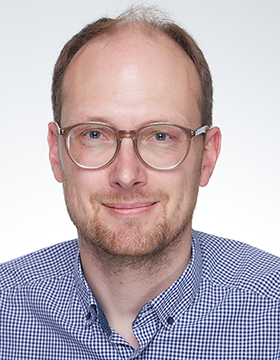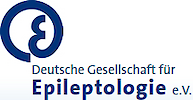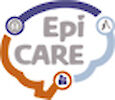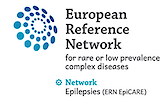A short interview with Prof. Dr. Björn Krüger
Who are you and where are you from?
My name is Björn Krüger, and I grew up in the Eifel and have resided in Bonn since the start of my studies. Today, I live with my family in Dottendorf which is located at the foot of the Venusberg.
What is your field of research?
My position is titled, “Personalised Digital Health and Telemedicine.” Since completing my diploma thesis, I have been working on technologies designed to capture human movements, search for patterns and analyse them. I am trying to develop methods which are independent of the sensors used for collecting the data. We can, for example, analyse movements that have been captured with video cameras, acceleration sensors (like those found in smartphones and smartwatches) or EMG sensors. This has already led to diverse collaborations in the fields of medicine and sports science. I am particularly interested in how we can utilize these technical capabilities to collect and analyse data from patients outside of clinical settings and laboratories. While the data might be less accurate as we no longer have an entirely controlled measurement situation, we can collect larger amounts of data over longer periods of time.
What was your scientific path up until now?
I studied computer science, mathematics, and physics here in Bonn. I received my diploma in computer science. Following my diploma thesis, I worked as a research assistant at the "Bonn-Aachen International Centre for Information Technology" (b-it) and later on at the Institute of Computer Science in Bonn, where I also obtained my doctorate on the topic of motion data.
After my PhD, I stayed in Bonn's computer science department for another three years as an academic councillor, where I conducted several projects, supervised doctoral students, and presented lectures.
In 2015, I received an offer from a small company in California to develop a sensor system for capturing the shape of the spine. This was an exciting project, as it allowed me to implement many concepts and ideas into a real product. At the same time, I had the opportunity to continue my work and publish research. Due to the COVID-19 crisis, the company was forced to pivot its entire business model. One consequence was the quick development of a second sensor system, which we could sell in combination with online courses. After these developments were completed, I decided to reorient myself and focus more on research and teaching.
Last year, I accepted a professorship at TH Köln for "Distributed Media Applications and Technologies." In January of 2023, I accepted the position here at the University Hospital Bonn.
Why are you especially interested in human movement data?
There are several reasons for this. Firstly, since attempts to analyse movements began, researchers have always worked with the latest technologies. This started back in the 19th century with the first photographs of movement sequences and continues to this day. Each new device is tested to see if and how it can be used to collect human data and how, with the help of machine learning methods, conclusions can be drawn about the person wearing the sensor. Furthermore, we always want to capture more precise information, which drives the development of new technologies.
Secondly, it is fascinating to see which details are encoded in our movements. In the 1970s, experiments were conducted in which human movements were reduced to a minimal signal: only a handful of moving points against a black background were visible. Despite this, subjects could recognize different types of movement, the gender of the performers, or people they knew from the signal. In a study I was involved in a few years ago, we were able to show that it is possible to estimate various parameters such as gender, weight, or age based on the analysis of only one step using acceleration data from a sensor. In the future, it will become increasingly possible to detect certain medical conditions at an early stage based on sensor data and then intervene accordingly.
I want to contribute to this goal through my work.
What are you particularly looking forward to during your time here in our Department?
At the University Hospital Bonn and also at the University of Bonn, we have many excellent colleagues who are leading experts within their fields of study. I am looking forward to this exchange and the opportunity to continue my research within such a strong, interdisciplinary network.
Moreover, working within a clinical setting makes all the research questions I am working on even more relevant. This is not about capturing movements for movies or computer games, but about helping people with our research.
Can you tell us what you like to do in your free time?
I like to spend a lot of time with my family, especially playing board games. My children are now older and at an age where it gets really exciting. As I spend a lot of time sitting at the computer, I like to be out in nature as a sort of counter-balance. Multi-day bike tours along the Rhine or camping at a scout campsite - very rustic with a campfire and guitar. But I also have a bit of nerd in me: I regularly meet-up with a friend from the university for "Star Trek" evenings.





















